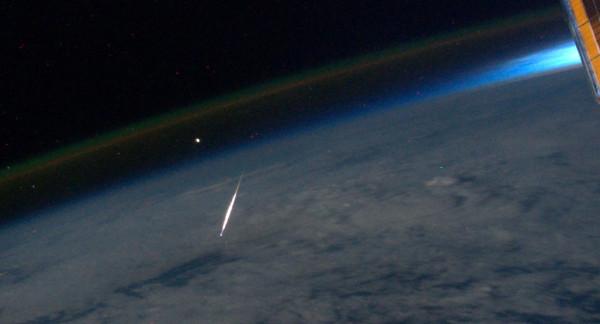
Space Radar Captures Echoes of Meteor Shower

Get the world’s most fascinating discoveries delivered straight to your inbox.
You are now subscribed
Your newsletter sign-up was successful
Want to add more newsletters?

Delivered Daily
Daily Newsletter
Sign up for the latest discoveries, groundbreaking research and fascinating breakthroughs that impact you and the wider world direct to your inbox.

Once a week
Life's Little Mysteries
Feed your curiosity with an exclusive mystery every week, solved with science and delivered direct to your inbox before it's seen anywhere else.

Once a week
How It Works
Sign up to our free science & technology newsletter for your weekly fix of fascinating articles, quick quizzes, amazing images, and more

Delivered daily
Space.com Newsletter
Breaking space news, the latest updates on rocket launches, skywatching events and more!

Once a month
Watch This Space
Sign up to our monthly entertainment newsletter to keep up with all our coverage of the latest sci-fi and space movies, tv shows, games and books.

Once a week
Night Sky This Week
Discover this week's must-see night sky events, moon phases, and stunning astrophotos. Sign up for our skywatching newsletter and explore the universe with us!
Join the club
Get full access to premium articles, exclusive features and a growing list of member rewards.
A space radar picked up the sounds of a meteor shower as it delighted skywatchers over the weekend.
The U.S. Air Force Space Surveillance Radar in Texas recorded echoes of the Perseid meteor shower on Friday (Aug. 12) as it passed over the monitoring facility. The Perseids are often the most dazzling meteor shower of the year, but a fluke of timing put the peak of this year's space rock light show in competition with the August full moon.
The 2011 Perseids did not disappoint, though, despite the moon's interference. Astronaut Ron Garan took pictures of the meteors from aboard the International Space Station, which are seen in the video.
{youtube jQNHE_fpDOI}
The Perseid meteor shower has been observed by skywatchers for at least 2,000 years, according to NASA. The meteors are actually pieces of the comet Swift-Tuttle, which orbits the sun once every 133 years. The meteor shower gets its name Perseid from its origin point in the night sky: the constellation Perseus.
Every August, Earth flies through the comet's cloud of debris and the tiny bits of Swift-Tuttle (most of them more than 1,000 years old) burn up in the atmosphere as they streak at nearly 133,200 mph (214,400 kph). According to the website Spaceweather.com, international observers reported up to 20 meteors per hour during the Perseids' peak.
Get the world’s most fascinating discoveries delivered straight to your inbox.
 Live Science Plus
Live Science Plus











